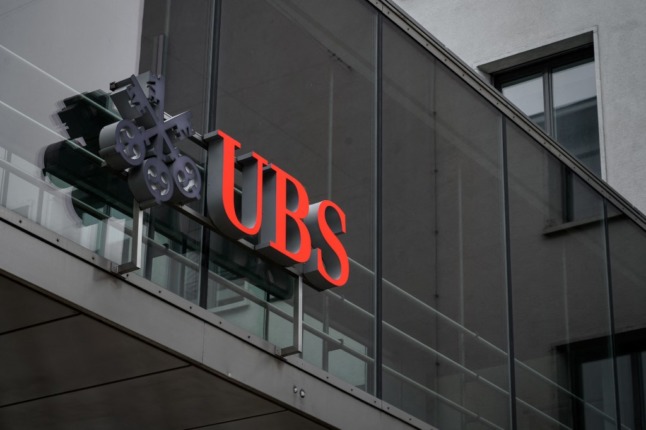Switzerland is a nation of bankers, but for Americans living here opening an account is a major headache.
Why are Swiss banks keeping US customers at bay?
The heavy-handed regulations are part of a wider US government effort to combat tax evasion.
The backlash has been building up since 2008, when Switzerland’s largest financial institution, UBS, helped wealthy Americans hide billions of dollars in undisclosed offshore accounts to evade taxes.
In the aftermath of this major scandal, the US government has created a myriad of requirements for other nations to follow to ensure that no foreign account belonging to an American goes untaxed by Uncle Sam.
The most important among them is the Foreign Account Tax Compliance Act (FATCA), which was passed by Congress in 2010 and went into effect on January 1st, 2014. It requires foreign banks to report to US tax authorities (IRS) all the assets that belong to US citizens – whether living in America or abroad.
Swiss banks are reluctantly complying with the rules because failure to do so can seriously impact their ability to do business in America.
What impact has all this had on US nationals in Switzerland?
“I’ve been ‘bank shopping’ here since I arrived eight months ago, but nobody wants to open an account for me once they find out I am American”, Terry, who is married to a French citizen and lives in the suburbs of Geneva, told The Local.
“I am seriously considering stashing my money under the mattress”, she said.
One reader, Sue*, got in touch with us to say that she eventually renounced her US citizenship in order to be able to have banking freedom in Switzerland.
Prior to that, she had “no financial independence” and was forced to rely on her husband.
“I was Swiss but had no rights, because I was also an American, to hold my own bank account without depositing very large amounts to purportedly justify the additional work by the bank to do all the necessary reporting to the U.S,” Sue said.
Sue said she was told she needed to deposit “a six figure sum” in order to have the account opened – and eventually decided to give up her US citizenship.
This scenario is all too familiar to another US citizen, Georges, from Vaud.
Unlike Terry, Georges is a so-called ‘accidental American’ — born in Switzerland of US parents. However, he had never lived in the United States and his links with the country are tenuous at best.
But since Georges had a US passport in addition to the Swiss one, banks saw him as a liability, until he, like tens of thousands of other Americans, decided to give up his citizenship.
As Terry and Georges’ experience shows, getting a Swiss bank to open an account for an American is a very complex process which often ends in failure.
Banks consider every candidate very carefully. Those who have lived in Switzerland a long time, have also a Swiss citizenship and, most importantly, are tax-compliant in the United States, can get a break.
However, an account will be open only under the condition that the customer will provide a copy of their US tax return and other financial statements filed with the IRS.
Which bank is best for Americans in Switzerland?
Other readers however have said that while it isn’t easy, Americans need to shop around to find the right account.
Several other American readers also told us UBS was the best option for Americans in Switzerland. While the fees were high, they would offer to open an account without a minimum deposit.
Sofia told us there was just more paperwork for Americans.
“UBS does still have American clients (you have to visit in person at the main branch in your city and sign documents about FATCA compliance), Post Finance will also open accounts, and so do some of the cantonal banks. It’s far from impossible,” she said.
Bob told us that Credit Suisse would open accounts for Americans, provided you waive the right to bank privacy in order with IRS regulations.
“(Credit Suisse are) pretty good at getting the annual form sent to the US IRS right. Just waive the bank privacy, fill out a US W-9, and no problem being a US citizen if you have a CH residency permit. Private bankers are very responsive.”
Eric, from Lausanne, pointed to UBS’ special accounts for Americans as a reason to sign up.
“UBS – (has a) separate bank for Americans and also one of the only ones (to offer banking to Americans),” he said .
“They are expensive like every bank but do not have minimum requirements like some of the other banks. Also, if you have a partner that is not American they have to have a separate account for you”
Travel: Six ways to save money while visiting Switzerland
Jeremy* also told us that he was able to open an account with UBS once he received his Swiss residency documentation.
“I am an American and moved to Switzerland recently. I did not have a problem opening an account once I received my B-permit. This said, the FACTA requirements are an annoyance, requiring additional paperwork.”
Nick, an American who lives in Bern, however said he was turned down by UBS – along with Credit Suisse – who told him he would need to wait for over a year before he could open up an account.
“Local banks won’t touch Americans due to (American) regulations,” he said.
He went with Valiant because it was the “Only bank that would open an account for me.”
Are there any changes on the horizon?
There could be negotiations to improve the situation in the near future. In a resolution passed on July 5th, 2018, the European Union unanimously called on member states and the European Commission to go back to the negotiating table with the US government to change how FATCA is enforced.
However, there doesn’t appear to be any movement on this just yet.
Though not a member of the EU, Switzerland would likely be part of any deal, as the country has bilateral treaties with the Union.
What options do Americans have now?
Unfortunately, only drastic ones.
One is to give up their US citizenship, but this can only be an option for people who are certain to never return to live in the US and who also have a Swiss nationality.
The other option is the one chosen by Terry — to stash the money under the mattress.
READ MORE: How to open a bank account in Switzerland
*Persons appearing with an asterisk had their names changed at their own request.
This report has been put together as a guide only and The Local has not received any juicy kickbacks from these banks, nor do we endorse one organisation over the other.



 Please whitelist us to continue reading.
Please whitelist us to continue reading.
Use http://www.Wise.com, keep your money in the usa. Wise provides the banking numbers you need to be billed in Europe.